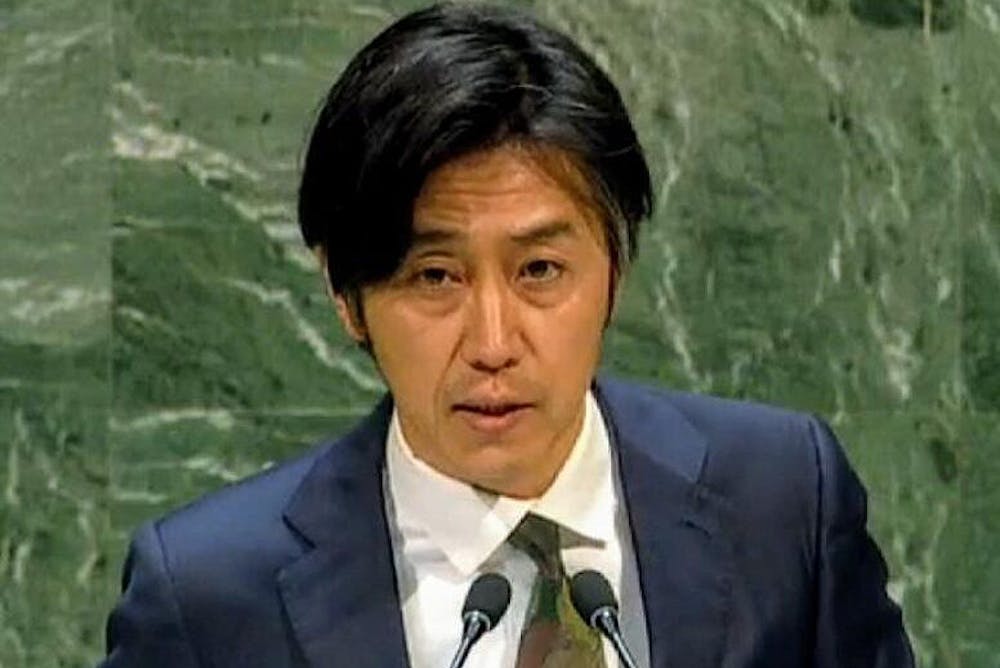
The Daily Pennsylvanian sat down with Satoshi Ezoe — the Japanese senior assistant minister for global health and welfare and one of Perry World House’s 2025-2026 distinguished visiting fellows — to discuss geopolitical health issues and his recent career engagements.
In his role as a distinguished visiting fellow, Ezoe engages with students, staff, faculty, and the community on pressing global issues including climate change, democracy, global justice, human rights, and security.” Thus far, he has attended a breakfast at PWH in collaboration with the College of Arts and Sciences international relations program and spoke at a PWH panel to discuss the future of global public health on Sept. 30.
In an interview with the DP, Ezoe touched on Japan’s health policies — specifically, Japanese universal healthcare — along with his views on international organizations and recent attendance at the annual United Nations General Assembly.
“People will think that universal care is like socialist care or government-run care but it is a bit different in Japan,” Ezoe said to the DP. “We do maintain the universality of care but 80% of medical healthcare providers are private and only 20% are public.”
Ezoe mentioned United States Medicare and Medicaid as examples of the inclusion of government-assisted care maintaining “robust medical science innovation.”
“It is true that the U.S. is number one in bioindustry and there is a lot of innovation there in new drugs and treatments,” he added. “But I don’t think there’s a trade-off between [innovation and government care].”
Ezoe also stressed the importance of public-private partnerships in furthering health goals, highlighting that Japan is a part of The Global Fund: a worldwide partnership to defeat AIDS, tuberculosis, and malaria.
“On [the Fund’s] board, government representatives are there but [there is] equal representation from other sectors like the private sector [and] civil society, including patient groups, are on the board,” Ezoe said. “We really value that kind of engagement.”
Ezoe also commented on the “Health and Global Policy Institute,” a Japanese non-profit, non-partisan think tank established in 2004.
“[The Institute] is good at convening different dialogue from people in government, the private sector, and civil society,” Ezoe said, adding that the Institute has a “regular partnership” with industry representatives and is a way to have “meaningful dialogue” with the private sector.
Ezoe attended the most recent U.N. General Assembly, where he met with global representatives on health policy, including the United States.
“We really value the bilateral relationship between Japan and the U.S. and we are close allies,” Ezoe said. “Because the new U.S. administration is in the process of consolidating their priorities, we are still learning about their priorities and exploring the area of collaboration.”
Ezoe added that Japan’s Ministry of Health, Labor and Welfare has had a “memorandum of cooperation” with the Department of Health and Human Services and partnership on infectious disease control with the Centers for Disease Control and Prevention.
“Every government is mandated to secure their own citizens … [they] need to care about their own people,” Ezoe said. “But in order to address global challenges such as pandemics, we need [a] global collective response as well.”
The Daily Pennsylvanian is an independent, student-run newspaper. Please consider making a donation to support the coverage that shapes the University. Your generosity ensures a future of strong journalism at Penn.
